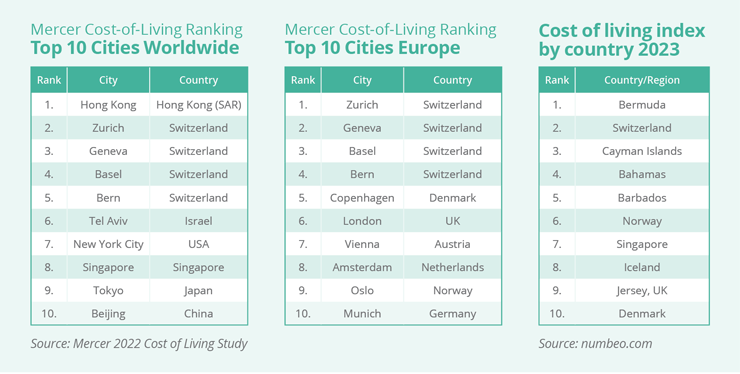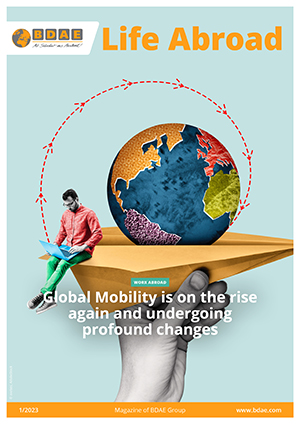The biggest challenges for expats in 2023
As an expat, adjusting to life in a new country can be both exciting and challenging. From culture shock to language barriers to finding a job, there are many potential obstacles that expats may face.
Whether you're an experienced expat or living abroad for the first time, preparing for these challenges can help ensure you have a successful experience. The insurance expert Allianz Care has researched some of the most common expat challenges in 2023 to help you prepare for your new life abroad.
1. The impacts of Covid-19 on expats.
Fortunately, travel restrictions due to Covid-19 have eased in most countries. However, some restrictions or requirements may still apply at the borders of some countries. This can pose an additional challenge for expats. There may be vaccination requirements that necessitate up-to-date vaccines or vaccination cards.
There may also be additional fees for PCR tests when entering the country. Although in the grand scheme of things this is just an extra step, it can cause additional costs and delays in getting to and from the new destination.
2. Expat burnout
It is not uncommon for expats or people that are living and working in a foreign country to experience burnout. Many suffer from the stress and challenges that living and working in a new environment may bring. Burnout symptoms are usually caused by the feeling of always being under pressure.
Considering the general challenges faced by expatriates and an ever-active society, there is no doubt that expatriate burnout will still be a major challenge in 2023.
If you are an expat suffering from burnout, it is important to take care of yourself and seek support when needed. Some ways to deal with burnout are:
- Taking breaks and finding time to rest and relax.
- Engaging in activities that are fun and help you relax
- Keeping in touch with friends and loved ones
- Seeking support from your team or friends or seeking professional counselling if needed.
Mental health as an expat factor
Even before departure, the threat of mental stress can be present, not only specifically through burnout. The unstable political and economic situation puts people under stress worldwide - mental (and sometimes physical) health is all the more threatened when one's own country suffers from a crisis. Health and safety expert International SOS has recognised the severity and added the criterion "mental health" to its International Health Risk Map - which expats and companies can use to identify trouble spots even before they are sent on assignment.
3. Cost of living
The rising cost of living affects everyone globally. All expats will face an increase in the cost of common expenses such as food, energy, and transport. Inflation has been rising around the world, so wherever you stay, you are likely to notice a difference.
The most expensive city for expatriates is Hong Kong. Following closely behind are Tokyo, Singapore, and Seoul. These are the findings of the Cost-of-Living Ranking, conducted annually by international consultancy firm Mercer, which assesses the cost of living for expatriates in 209 major cities.
Eight of the ten most expensive cities in the world for expatriates are in Asia. There, the real estate market and the currency are pegged to the US dollar, which drives up the cost of living locally.
Expats can find some tricks to reduce their expenses, for example by cooking for themselves instead of going to a restaurant or ordering food. Another option is to give preference to bus and train over car – or to cycle or walk directly. Even if the general price situation in a country or especially in a city is not within the power of the individual, it is still possible to reduce costs a little.

4. Secure accommodation
Finding affordable housing for yourself and your family in the new country can be the hardest challenge you’ll face. In any case, the housing market in many regions of the world is extremely tight and even long-established locals have problems changing flats. This makes it all the more difficult for expats who are unfamiliar with many of the formalities that will be necessary in the new country and sometimes do not have all the necessary documents at hand.
Accommodation is usually one of the biggest cost factors for new expats. Even at the beginning of the planning phase of an expat’s life, it can be worthwhile to compare the rental prices for different countries. This can be done, for example, using the cost-of-living study by the analysis platform Numbeo. If you look at the rent for a three-room flat in the city centre as a comparative figure, the following top 10 countries with the most expensive rents on average emerge.
According to recent surveys, four-fifths of companies provide allowances for accommodation on long-term assignments. Therefore, it's worth considering this when moving to a new city with a high cost of living. Expats looking for accommodation on their own need to be wary of scammers when searching online. The key is to find reputable websites.
5. Health insurance
Before expats move abroad, they must take out health insurance cover. For example, Allianz Care offers several products. BDAE offers a comprehensive range of products, with the right health insurance for almost every type of stay abroad. In addition, we offer personal advice - no call centre! Another BDAE advantage: we take a holistic view of the topic of foreign countries, so with us, you have all the specialists under one roof - regardless of whether it's about ensuring a family of four, an employee's 3-year stay at the subsidiary in Asia or emigrating for the rest of your life after retirement!

